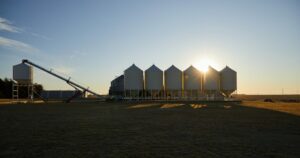Despite the many headlines and conversations about sustainable agriculture, there are still plenty of unknowns as to how to best engage with farmers to reward existing sustainable practices or incentivize them to adopt new ways of farming.
Growing numbers of U.S. farmers have already implemented sustainable agricultural practices, including no-till, reduced till, cover crops, nutrient management, and water management/stewardship. And yet, only 10% of farmers surveyed for Bushel’s 2023 State of the Farm Report said they are participating in sustainability or carbon programs. When asked what stands between them and their participation in a program, 60% said they didn’t have enough information while only 20% said they were waiting for the best financial opportunity.

Nearly 50% of respondents said they turned to online research when looking for information about sustainability programs. A quick Google search for “Carbon Credits for Farmers” shows the high number of results, but it’s not easy to sift through all of the information to determine what might be best for that farmer.

Farmers said peers are the second most used source of information related to sustainability programs, followed by their agronomist, ag input dealer, and crop insurance agent. Grain buyers were ranked by farmers as the least used source of information about opportunities to participate in sustainability programs.
In the midst of growing climate concerns, new economic opportunities are emerging to incentivize farmers to implement sustainable practices, including Section 45z – Clean Fuel Production Credit, part of the Inflation Reduction Act.
Regardless of the program, one of the first steps is to engage farmers. As indicated, they are seeking information, and if you are offering a specific program, you can help them understand the requirements and program details. Here are some ideas for agribusinesses who want to begin engaging farmers for participation in a sustainability program.
- Collaborate with experts: Partner with sustainability experts, agronomists, and environmental scientists to provide credible and expert-led information during a grower meeting or other event. Farmers are more likely to embrace sustainable practices when the information comes from trusted sources.
- Encourage digital record keeping: Regardless of how programs evolve, one key is to encourage farmers to keep digital records of their farming practices. In a recent USDA report, record keeping and data collection requirements were listed as a barrier to participation in carbon markets.
- Online resources: Since online research is one of the top ways farmers are seeking information, consider having resources and links to programs on your website. This will help meet farmers where they are and strengthen your agribusiness as a trusted resource.



